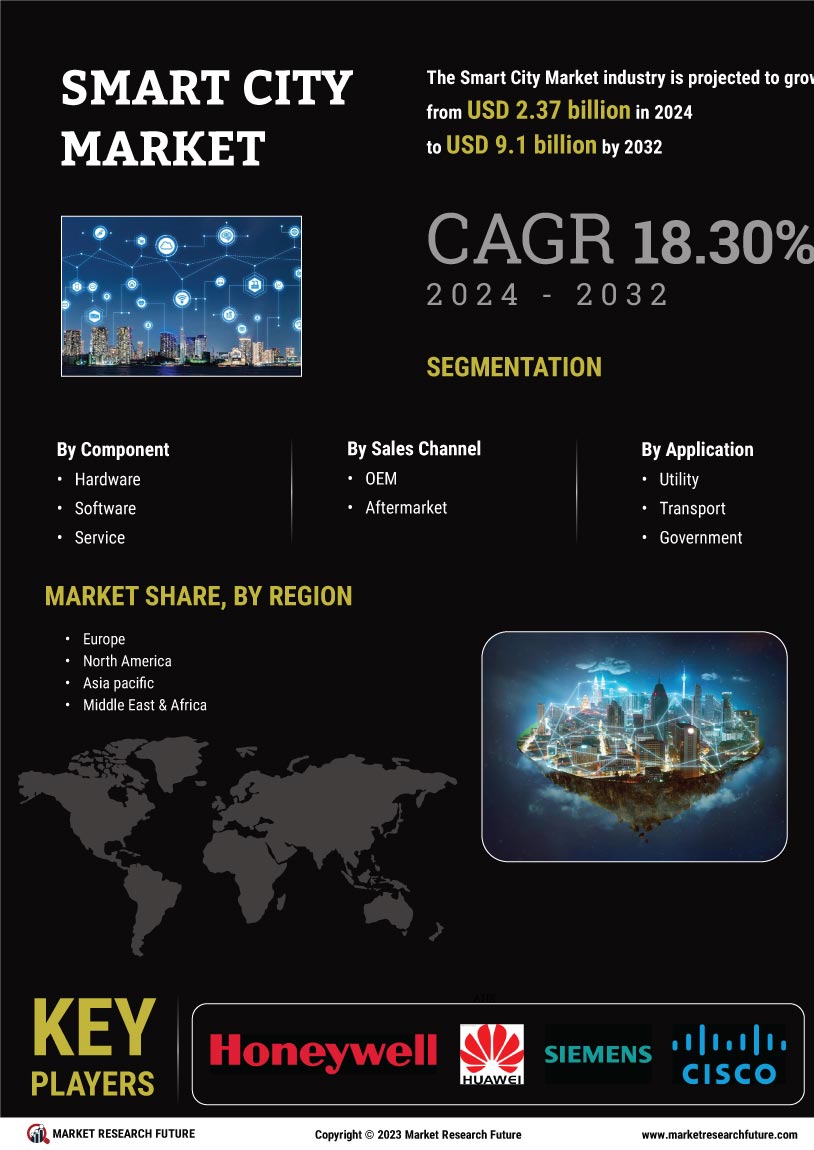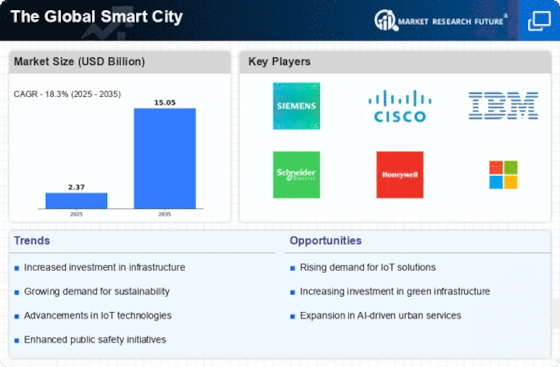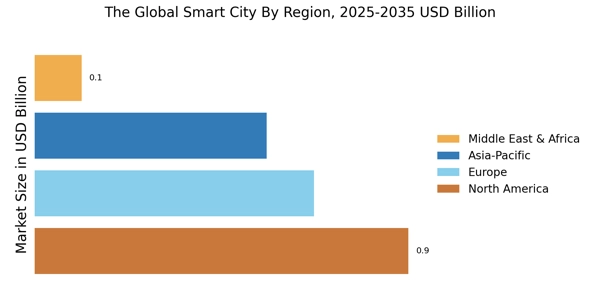Rising Urbanization Trends
The ongoing trends of urbanization are a significant driver for The Global Smart City Industry. As more individuals migrate to urban areas, cities are faced with the challenge of accommodating growing populations while maintaining quality of life. It is estimated that by 2050, nearly 68% of the global population will reside in urban areas, necessitating the implementation of smart solutions to manage resources effectively. Urbanization leads to increased demand for efficient public services, transportation systems, and housing. Consequently, cities are investing in smart technologies to enhance infrastructure and service delivery. This trend is likely to stimulate innovation and investment in The Global Smart City Industry, as urban planners seek to create sustainable and livable environments for their residents.
Increased Focus on Public Safety
The heightened focus on public safety is emerging as a vital driver for The Global Smart City Industry. With urban areas facing various security challenges, cities are increasingly adopting smart technologies to enhance safety measures. The integration of surveillance systems, emergency response solutions, and data analytics is becoming commonplace in urban planning. According to recent studies, The Global Smart City Market is projected to reach USD 100 billion by 2025, reflecting the growing emphasis on safety in smart city initiatives. These technologies not only improve crime prevention but also enhance emergency response times, thereby fostering a sense of security among residents. The prioritization of public safety is likely to drive further investment and innovation within The Global Smart City Industry.
Technological Advancements in IoT
The rapid advancements in Internet of Things (IoT) technologies are significantly influencing The Global Smart City Industry. IoT enables the interconnectivity of devices, allowing for real-time data collection and analysis. This capability is crucial for enhancing urban services such as traffic management, waste management, and public safety. The market for IoT in smart cities is projected to grow at a compound annual growth rate (CAGR) of 25% from 2023 to 2030, reflecting the increasing reliance on smart technologies. Cities are leveraging IoT to optimize resource allocation and improve operational efficiency, which in turn enhances the quality of life for residents. The proliferation of smart sensors and devices is facilitating the development of intelligent urban ecosystems, thereby driving the demand for innovative solutions within The Global Smart City Industry.
Government Initiatives and Policies
Government initiatives and policies play a crucial role in shaping The Global Smart City Industry. Many governments are actively promoting smart city projects through strategic frameworks and funding programs. For instance, initiatives aimed at enhancing urban mobility and sustainability are being prioritized, with substantial investments allocated to infrastructure development. The European Union has earmarked over EUR 100 billion for smart city projects as part of its Green Deal, indicating a strong commitment to urban innovation. Such policies not only foster public-private partnerships but also encourage local governments to adopt smart technologies. The alignment of national and local policies with smart city objectives is likely to create a conducive environment for growth, thereby propelling The Global Smart City Industry forward.
Sustainable Infrastructure Investment
Investment in sustainable infrastructure is a pivotal driver for The Global Smart City Industry. As urban populations continue to swell, cities are increasingly prioritizing eco-friendly construction and energy-efficient systems. This trend is evidenced by the projected growth of the green building market, which is expected to reach USD 1.6 trillion by 2025. Such investments not only enhance the livability of urban areas but also contribute to reducing carbon footprints. Furthermore, governments are incentivizing sustainable practices through grants and subsidies, thereby accelerating the adoption of smart technologies. The integration of renewable energy sources, such as solar and wind, into urban planning is becoming commonplace, indicating a shift towards more resilient city infrastructures. This focus on sustainability is likely to drive innovation and investment in The Global Smart City Industry.
















